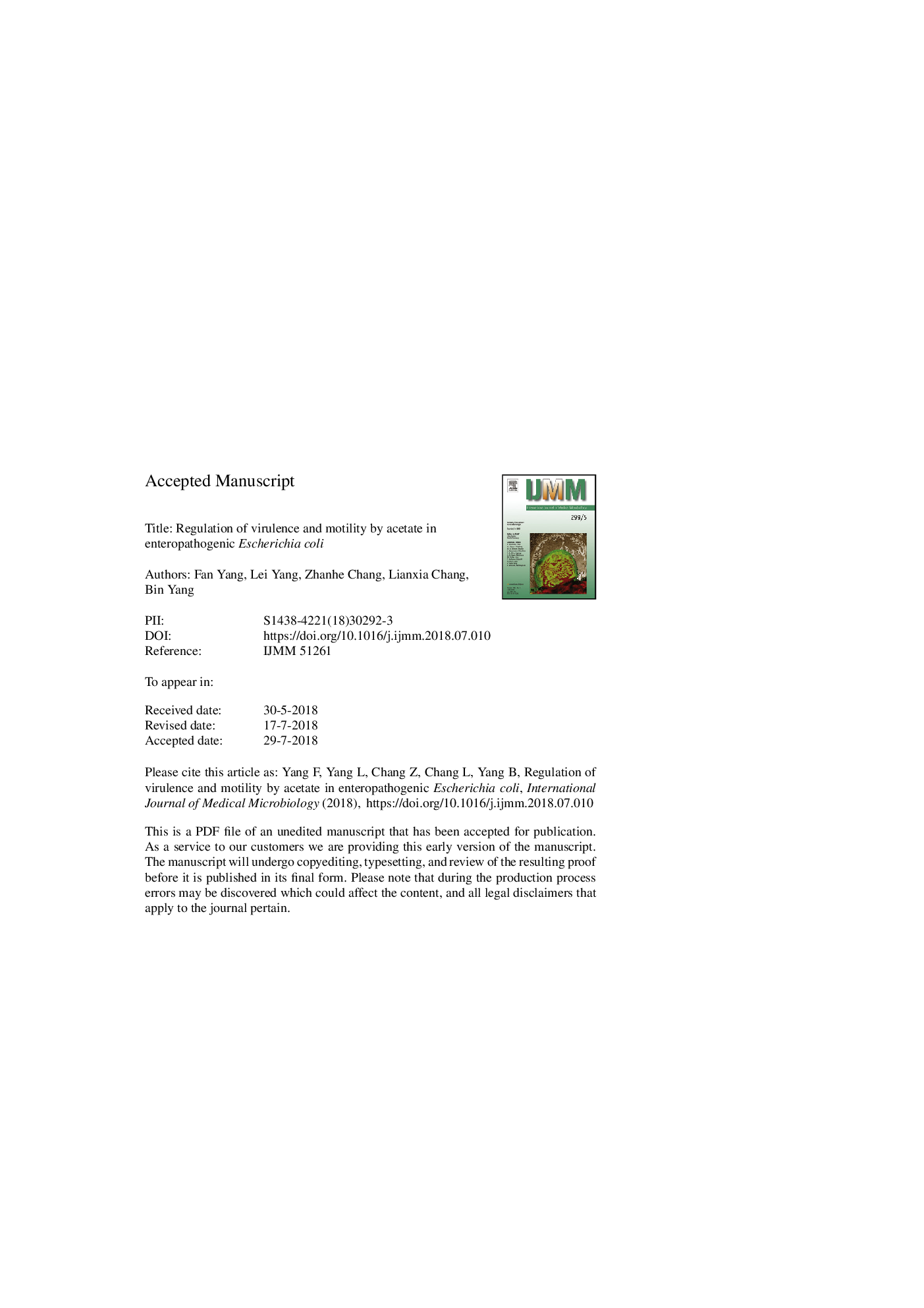| Article ID | Journal | Published Year | Pages | File Type |
|---|---|---|---|---|
| 10157223 | International Journal of Medical Microbiology | 2018 | 31 Pages |
Abstract
Enteropathogenic Escherichia coli colonizes the human small intestine and causes severe diarrhea. Short-chain fatty acids are abundant in the intestine owing to the metabolic activity of the microflora and are important for intestinal health. Here, we found that acetate promotes the adherence of enteropathogenic E. coli O127:H6 to Caco-2 intestinal epithelial cells and its motility on semi-solid Luria-Bertani agar by activating the expression of locus of enterocyte effacement genes and flagellar genes, respectively. The effect of acetate on locus of enterocyte effacement gene expression is mediated by Ler, the master regulator of locus of enterocyte effacement genes, whereas the regulation of flagellar genes by acetate is dependent on the RNA polymerase sigma factor FliA. Conversely, formate, propionate, and butyrate had little or no effect on enteropathogenic E. coli O127:H6 adherence and motility. Finally, the acetate-mediated regulatory pathway was found to be a widespread mechanism used by a range of enteropathogenic E. coli to mediate bacterial virulence and motility. Therefore, upon entering the human small intestine, enteropathogenic E. coli may respond to the higher acetate level to enhance its virulence and motility, leading to efficient colonization of the target niche.
Keywords
Related Topics
Life Sciences
Biochemistry, Genetics and Molecular Biology
Biochemistry, Genetics and Molecular Biology (General)
Authors
Fan Yang, Lei Yang, Zhanhe Chang, Lianxia Chang, Bin Yang,
